la cirugía de implantes basales
The treatment for the placement of a basal implant and its fixed prosthesis is completed in just 5 days, with patients ready to return home on the 7th day. Unlike traditional dental implants, only one step is required, and the basal implant is immediately loaded, providing both functionality and comfort without delay.
The success of the treatment relies on strictly following 6 phases, which are essential to ensure proper implant integration, prosthesis stability, and the prevention of complications. Below is the classic procedure for the installation of basal implants and their fixed prosthesis (bridge):
Este eficiente protocolo asegura la eficiencia, manteniendo los más altos estándares de atención.
Basal dental implants, step by step procedure
The panoramic X-ray and 3D dental scan are performed before the consultation, enabling the digital reconstruction of the dento-maxillary arches. Based on these the treatment strategy is determined and the size and shape of the basal implant.
During the consultation, the treatment plan is confirmed, while the prosthetist helps select the shape, color, and size of the teeth. For those opting for general anesthesia or sedation, the anesthetist ensures compatibility with their health.
At Anveli Dental, a free preoperative expertise minimizes changes to the treatment plan, with morphological simulation ensuring high-precision dental surgery.
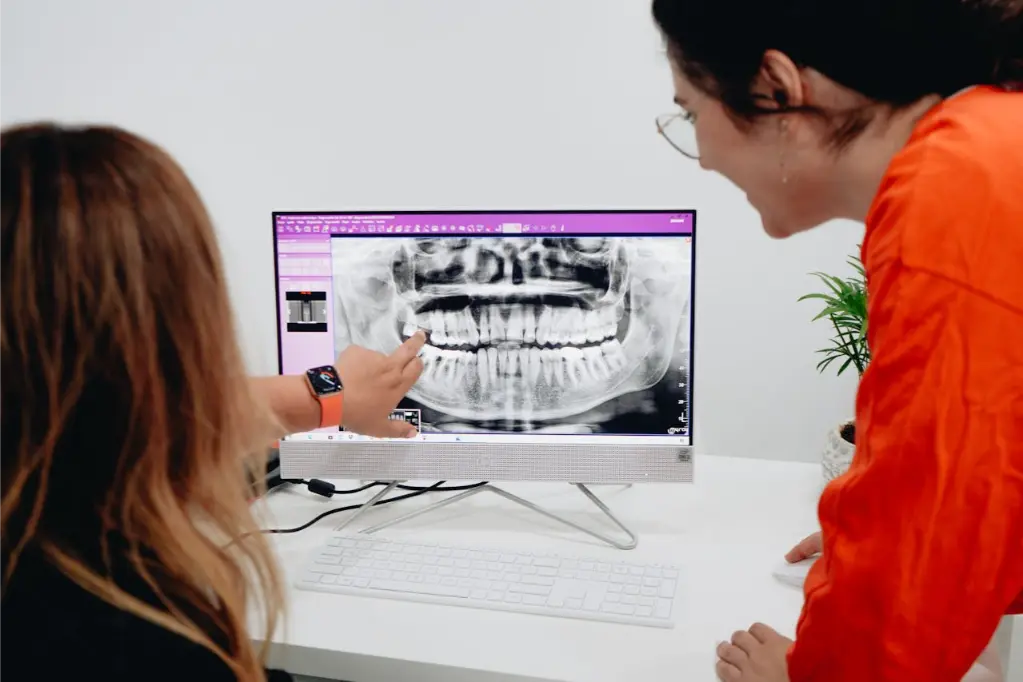
La operación quirúrgica, que consiste en la colocación de los implantes basales, se inicia con la extracción de los dientes. Después de un gingival plastia (tratamiento de los tejidos blandos evitar la retracción de la encía) el cirujano dental lugares cada basal implante en las ubicaciones predefinidas por el dento-maxilar estudio.
The placement of the new generation of basal dental implants is a relatively painless but lengthy procedure. To ensure maximum comfort, we offer the option of general anesthesia or unconscious sedation. While local anesthesia is available, the sights and sounds of the procedure may be stressful for some patients, making sedation or general anesthesia a preferred choice for a smoother experience.
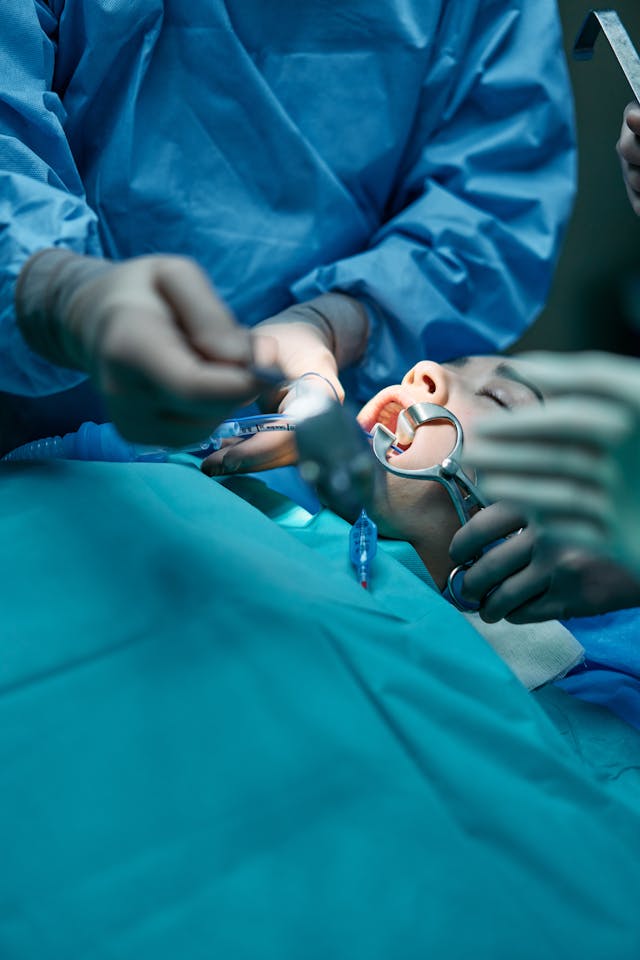
La basal implante is a minimally invasive solution, utilizing a 1-millimeter drill for precise placement with minimal trauma to bone tissue. Its elliptical design allows it to self-implant like a self-tapping screw, eliminating the need for gum detachment in most cases. Securely anchored into the cortical bone (using the bi-cortical technique), it offers exceptional stability and long-lasting durability, seamlessly integrating into the dental socket even after extractions. This cutting-edge approach ensures a pain-free, quick, and virtually bloodless procedure, enabling faster recovery and minimal patient discomfort.
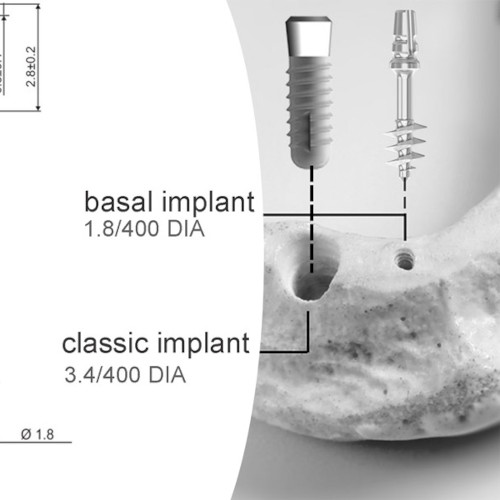
La basal dental implant La basal del implante dental (Estratégico Implante®️), gracias a su forma elíptica se auto-implante con un mínimo de trauma en el tejido óseo. En el mismo principio como un autoperforantes tornillo, va a seguir el micro-perforación que sirve como guía. Si no ha habido extracciones, la goma de mascar no presenta lesiones postoperatorias. Si no ha sido la extracción del diente, el implante va a venir a s' implante en el zócalo dental.
En la mayoría de los casos, no es necesario separar el tejido de las encías. La basal del implante llegue a la segunda capa de la el hueso cortical (de ahí su nombre bi-cortical implante). Hueso de la corteza está presente en todas partes, pero se encuentra en grandes cantidades en la mandíbula superior, bajo el tabique nasal y cigomáticos de la zona (en el nivel de la sabiduría de los dientes de la mandíbula superior). En el maxilar inferior, está presente principalmente en el frontal de la zona.
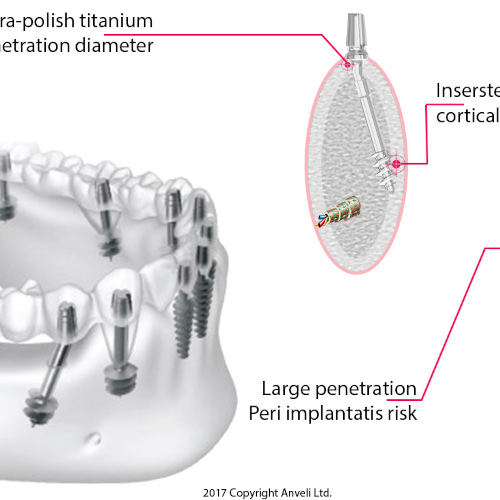
Durante la colocación de un basal implant, gingival plasty may be performed (in cases of extraction) to reduce the risk of gingival resorption and prevent gaps between the bridge and the gum. This procedure involves regularizing the post-extraction ridges with sutures to accelerate the natural healing process, achieving up to 90% healing within 48 hours of extractions and implant placement. Additionally, the gum tissue is thoroughly cleaned, and any infections or periodontal pockets are treated through curettage.
For patients with significant gingival loss, the dental bridge can include a thin layer of false gum (1mm) that closely mimics the natural gingiva, ensuring a seamless connection between the bridge and gum. This customization is discussed and finalized with the dental technician on a case-by-case basis.
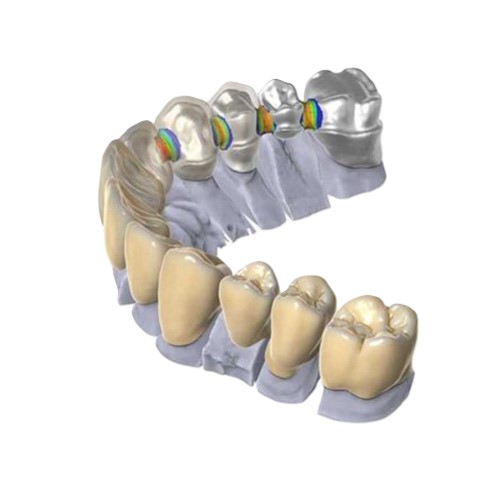
La colocación de la prótesis fija
Prosthesis over basal dental implants is a crucial component in the success of last-generation of implantology. It must be securely fixed within 72 hours of the dental surgery. This prosthesis ensures the proper distribution of chewing forces across all basal implants, enhancing stability and durability. The success of the entire treatment largely depends on the precise execution of the fixed prosthesis, making it an indispensable step in basal implantology.

Las medidas tomadas después de la colocación de la basal del implante requieren una gran precisión. Durante las horas siguientes a la operación, los técnicos en nuestros laboratorios, el uso de equipos tales como un escáner 3D, llevar a cabo un modelado de los maxilares con el fin de garantizar el exacto equilibrio de la oclusión.
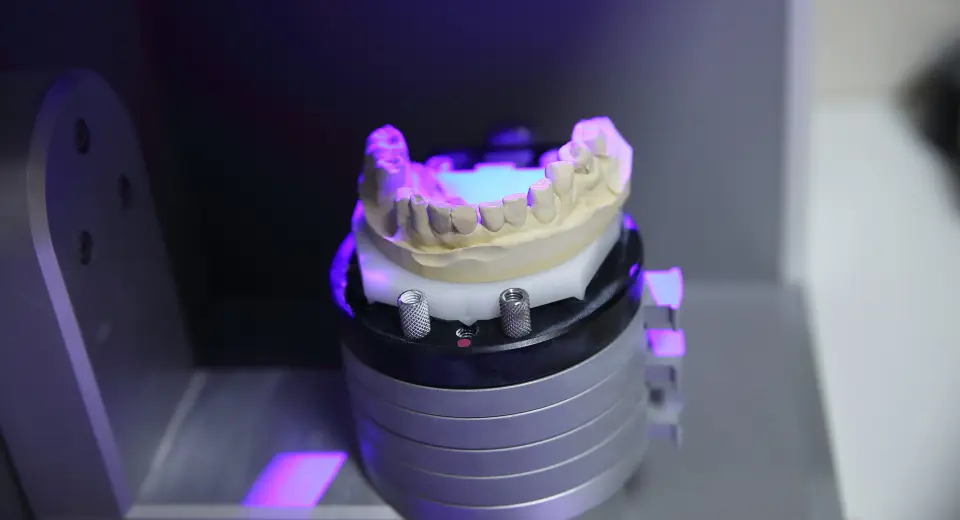
After selecting the shape, size, and color of their new teeth, patients preview the crowns in their mouth the day after the basal implants are placed. Developed by the International Implant Foundation, this process allows real-time adjustments to the shape, inclination, and placement based on patient preferences and facial structure.
Once the aesthetics are approved, the final bridge is crafted within 48 hours, ensuring a personalized result. This innovative approach eliminates surprises, unlike traditional methods were limited after completion.
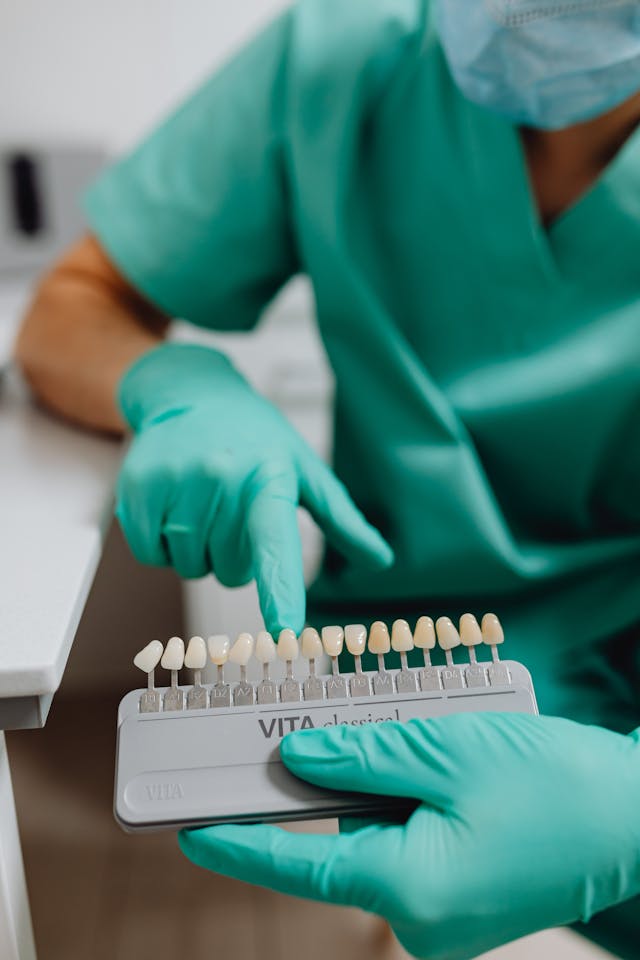
Después de 3 pruebas y correcciones y numerosas mediciones precisas de la oclusión y el cruce con la encía, la prótesis se fija en la parte basal de los implantes. El paciente puede comer normalmente la misma noche.
Dentists who practice basal implants in France The basal implantology in France, which consists of...
Fumar es la fuente de muchos problemas de salud oral y en general para la salud.....
The placement of one or more dental implants involves risks. As with any dental, medical...

Anveli Dental
Asistente en línea
Anveli Dental
Hello, how can we help you? 🙂